
PUMPA - SMART LEARNING
எங்கள் ஆசிரியர்களுடன் 1-ஆன்-1 ஆலோசனை நேரத்தைப் பெறுங்கள். டாப்பர் ஆவதற்கு நாங்கள் பயிற்சி அளிப்போம்
Book Free DemoWe use a filtration process to separate the impurities from the drinking water. Now, let us learn more about this process.
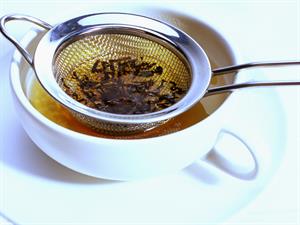
Tea filtration
Filtration:
Filtration is a purification method that separates a mixture consisting of a liquid and solid substance.
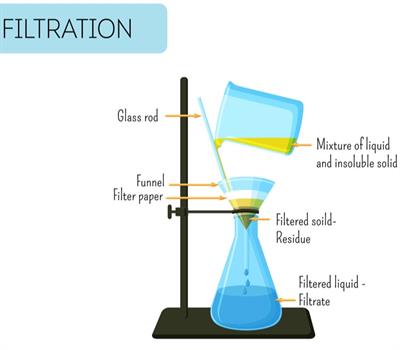
Filtration method
Filtration is used to separate solids of various sizes. For example, a mixture of clay and water or a mixture of sand and water can be separated using this method.
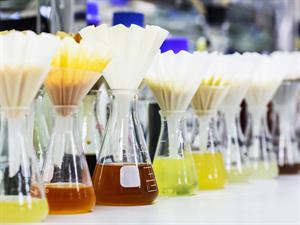
Filter paper kept on the conical flask
Function:
- The mixture of a liquid and solid are introduced in the filter. And the filter separates the solids from the liquid substance. Therefore, the solid remains in the filter. Finally, we get the pure liquid substance in a separate vessel.
- Filtration is the method of moving suspended solid matter through the pores of a filter to separate it from a liquid. The filtrate is the substance that has gone through the filter.
Example:
Let us now do the filtration process for a given substances.
1. Salt with sugar mixture
2. Salt with Tea powder
1. Salt with sugar mixture
2. Salt with Tea powder
Step 1: Mix the given sample in a beaker with the minimum amount of water.
Step 2: Take the filter paper and a funnel. Fold the filter paper in such a way that it fits the funnel.
Step 3: Now, keep the funnel with the filter paper on a clean flask and start filtering without damaging the filter paper.
Step 4: We obtain the filtrate in the flask.
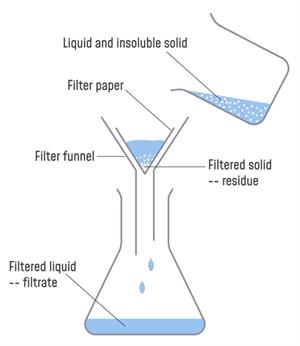
Filtration method
Observation:
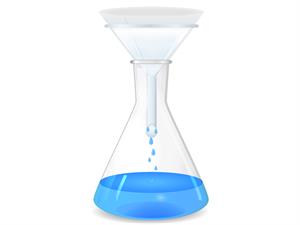
Homogeneous solution filtration
When mixed with water, mixture one gives a homogeneous solution, whereas the second mixture gives a heterogeneous solution when mixed with water.
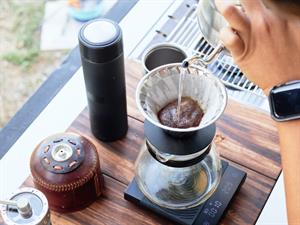
Heterogeneous solution filtration
Result: For the first mixture, there are no residues left on the filter paper, whereas for the second mixture, there is residue in the filter paper. Finally, the obtained filtrate in both the beakers is a solution.
Disadvantages of Filtration:
- Small, slimy precipitates often slow filtration from the hot solution or form crystals in the filter paper or the fabric used.
- Any effort to speed up the filtration process by scraping or stirring the residue on the fabric would always result in turbid filtrate.
Application:
- The filtration process is essential to separate the impurities from the drinking water.
- In the pharmaceutical, the filtration process is necessary to make new drugs, etc.